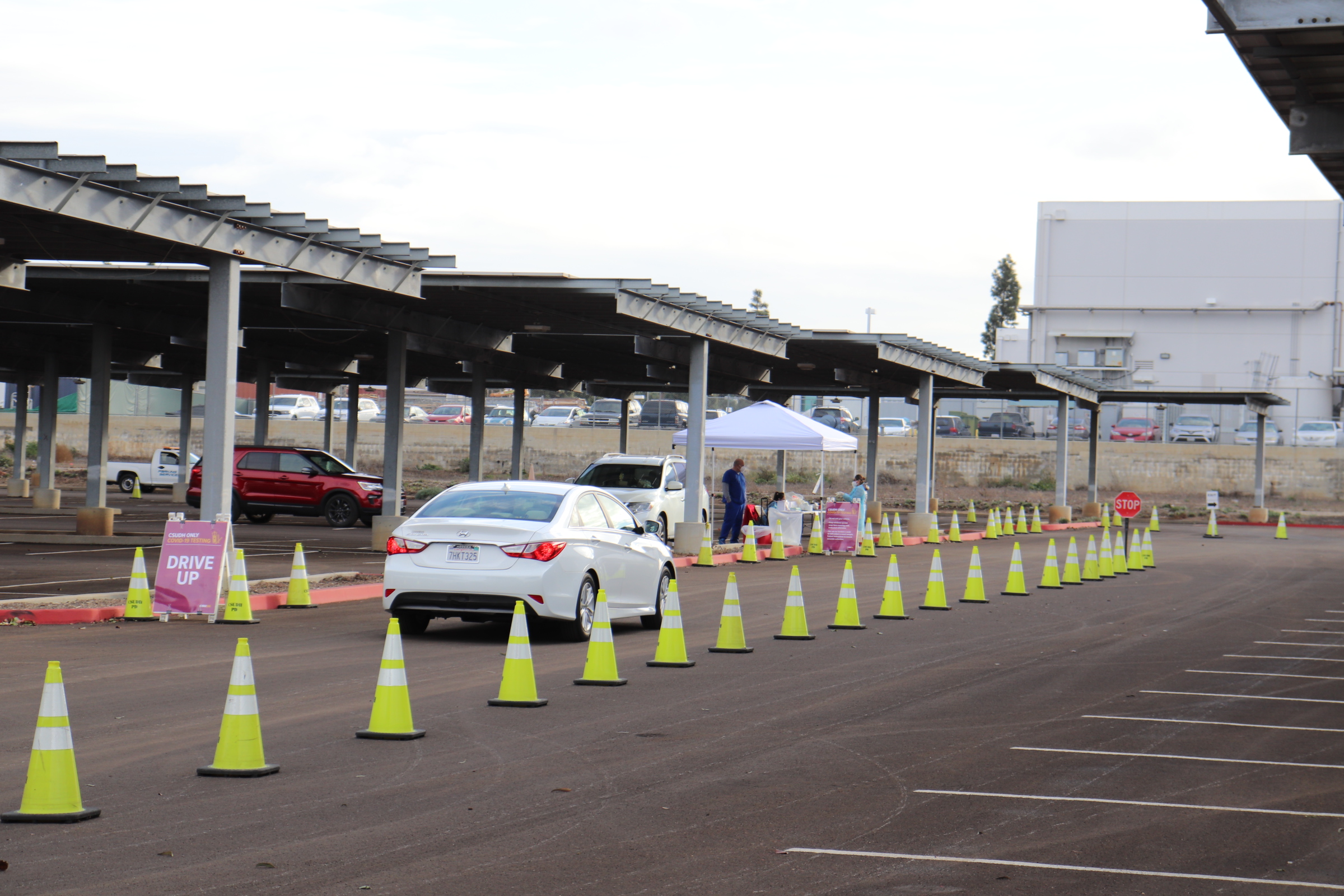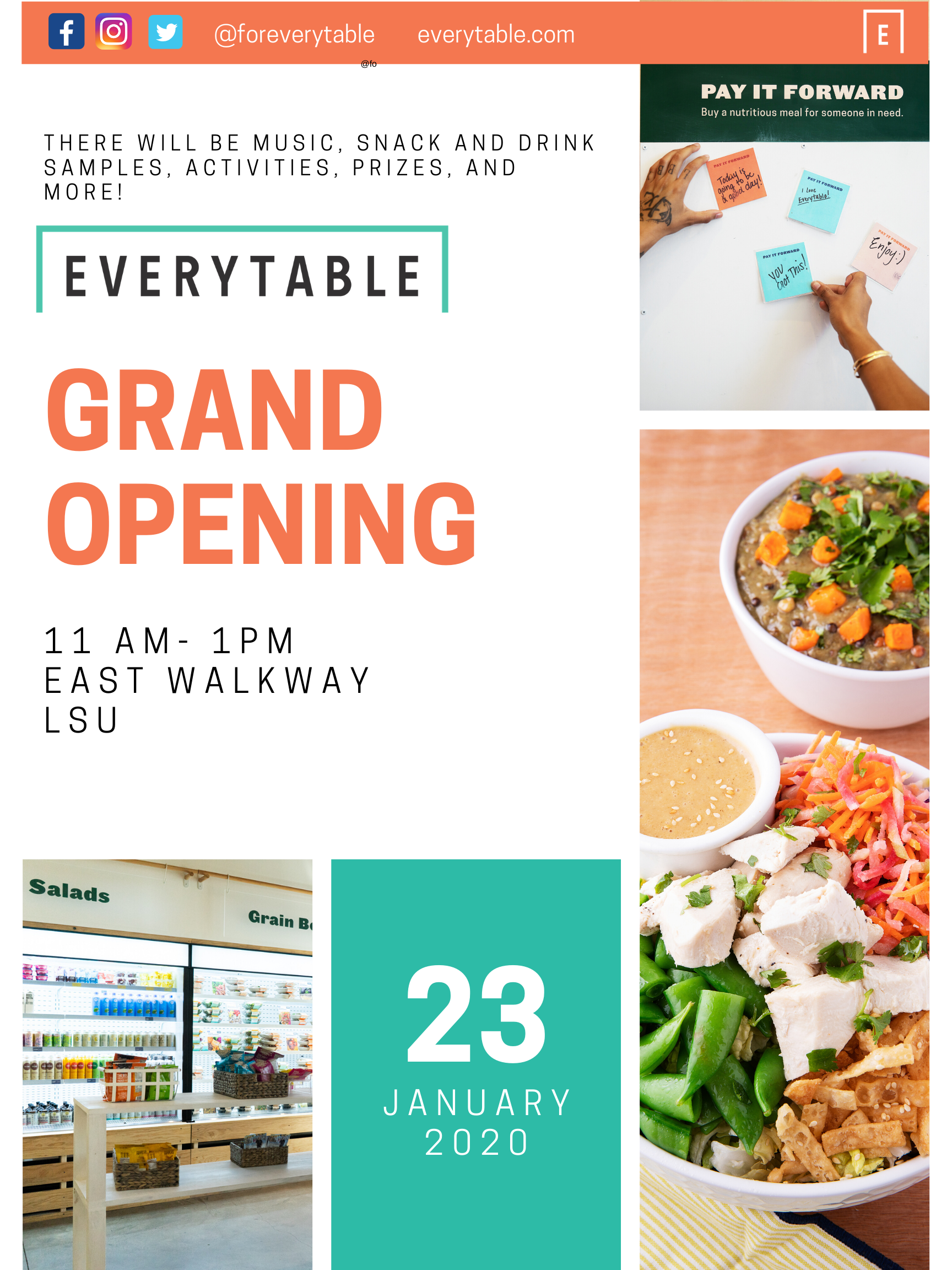Parking Lot 1 will be dedicated as a weekly COVID-19 testing site for eligible students, faculty and staff. Photo by Iracema Navarro.
By Robert Rios, Senior Campus Editor, and Chaz Kawamura, Staff Reporter
Students enrolled in one of California State University, Dominguez Hills’ limited number of face-to-face classes scheduled to begin Feb. 8 must take a big test before stepping foot on campus: a COVID-19 test.
The university is requiring weekly COVID-19 testing for all students coming to campus for classes, as well as weekly testing for student housing residents. The tests are not mandatory but “highly suggested” for any faculty or staff returning, according to the school’s Toros Together page on the university website.
However, while next Monday remains the date for some of the approximately 70 classes that have been approved for limited in-person instruction, CSUDH President Thomas A. Parham said Wednesday that date could change.
At Wednesday’s Academic Senate meeting, Parham said plans were still on track to keep the first two week of the semester virtual but then resume a limited number of in-person classes beginning Monday, Feb. 8.
But, Parham said, with the third surge that health officials predicted last year in “full bloom,” as the semester starts, that date could be pushed back.
“Depending on the COVID numbers that time frame may be extended,” Parham said during his report to the senate. “But we’ll have to wait and see what our counting numbers look like and the advice that comes from our public health officials.”
The testing will take place on Wednesdays in Parking lot 1. Only students who are not showing or feeling any symptoms may take the free test. Faculty teaching the classes do not have to take the test, and faculty who have received clearance for temporary, one-day returns are not eligible for the test, according to the website.
Those tested should receive their results within 24 to 48 hours. Anyone receiving a positive test must wait a week and be tested again in order to return to campus.
“Keeping students, faculty and staff safe is the number one priority of the campus,” Larry Kimaara, the senior director of the university’s Internal Controls & Risk Management, said. “To meet the mission of the university, which is educating students, the campus must take steps to keep learning activities going in a safe manner. Availability of regular, free testing is an important tool in achieving this goal.”
In December, Parham announced that all in-person instruction and other non-essential visits to campus would stop for eight weeks, including the first two weeks of the spring semester. The university has stuck to that date even as some local universities, including Cal State Long Beach, have moved their original opening dates, and others, like Cal State Fullerton, have slashed their number of in-person classes.
On January 13th, Cal State Long Beach announced that it was moving its original planned date for resuming its small number of in-person classes this semester from Feb. 1 to March 1. This week, Cal State Fullerton’s student newspaper, the Daily Titan, reported that university‘s decision to cut its number of in-person classes from nearly 300 to 76.
At CSUDH, about 70 classes will offer some form of in-person instruction. According to the university’s website, those classes entail ” practical and hands-on learning, and clinical placements that cannot otherwise be offered.”
All but 13 of the classes are offered by either the College of Education or the College of Arts and Humanities, with most of those being dance, music or theater classes.
This type of repeat testing, also known as surveillance testing, is a public health protocol designed to help “monitor the prevalence of COVID-19 in the community, according to the Toros Together page “Through repeat testing of asymptomatic people working and learning on campus this spring, we can more closely monitor COVID-19’s presence in our campus community and respond accordingly to stop the spread.” Walk-up accommodations will be made for those who cannot arrive by vehicle.
Participants will get tested in Parking Lot 1 at the appointed time and must have an ID card issued by the state or the university. A nasal swab test will be administered, and they will receive their results within 24 to 48 hours.
In order to be tested, eligible CSUDH students, faculty and staff will receive an email link weekly in order to make an appointment. A confirmation email with the appointed time will be sent to the testing provider Phamatech Laboratories and Diagnostics after the appointment is made.
“Many of the outbreaks in our community have been tied to businesses, so Phamatech took additional steps to bring in new equipment and tests so local businesses can help employees feel confident in returning to the workplace,” Vice President at Phamatech Inc, Dr. Thomas Aucoin said in a press release. “We are already working closing with local physicians and corporations to begin the testing of their employees and support their measures for safe reopening plans.”


